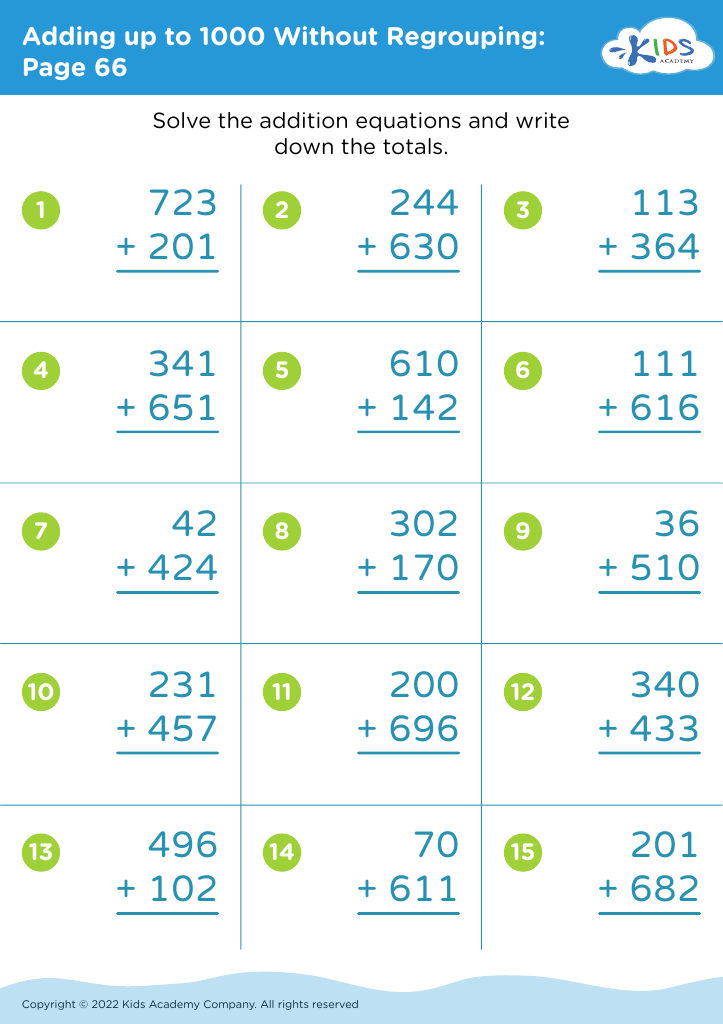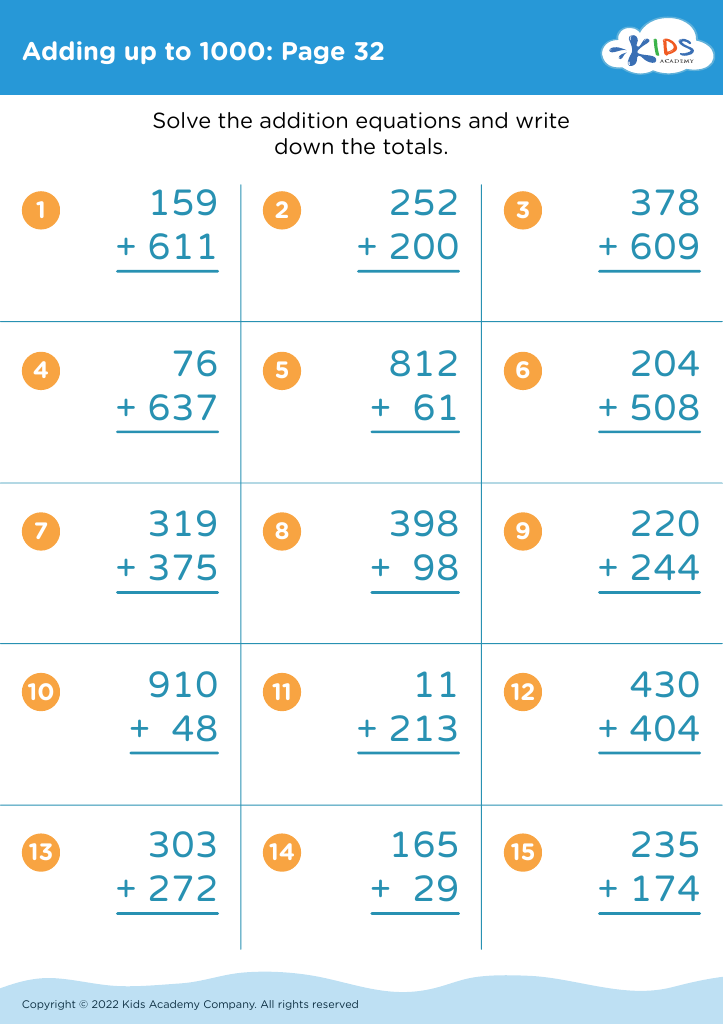Recognize shapes Adding up to 1000 Worksheets for Ages 3-8
4 filtered results
-
From - To
Explore our "Recognize Shapes Adding up to 1000 Worksheets," specially designed for ages 3-8! These engaging worksheets combine shape recognition with addition skills, making math fun and educational. Young learners will identify and classify various shapes, all while practicing addition with numbers up to 1000. Each worksheet supports visual learning through vibrant illustrations, ensuring that children stay motivated and focused. Our resources are perfect for both classroom settings and at-home activities, helping to build a strong mathematical foundation. Encourage your child's creativity and critical thinking skills as they recognize shapes and master addition in a playful and interactive way!
Recognizing shapes and understanding the concept of adding up to 1000 are fundamental skills that significantly influence a child's cognitive development and academic success. Starting with shapes, children learn to identify and manipulate different geometric forms, which helps enhance their spatial reasoning—a critical skill that aids in problem-solving across various subjects, particularly math and science.
For ages 3-8, engaging with shapes ignites creativity and improves fine motor skills through activities like drawing, cutting, and constructing objects. This foundational knowledge serves as a building block for more complex mathematical concepts, ensuring children are better prepared for future learning.
Additionally, introducing the concept of numbers summing up to 1000 fosters number sense and mental math skills. This endeavor allows children to explore addition in a tangible way, promoting the understanding of place value and numeric relationships. Mastery of these concepts boosts self-confidence in young learners, encouraging a positive attitude toward math.
By focusing on recognizing shapes and numerical relationships, parents and teachers can provide hands-on, interactive learning experiences that make foundational math fun and accessible. Together, these skills foster critical thinking abilities, prepare children for more advanced mathematical reasoning, and contribute positively to their overall educational journey.

















